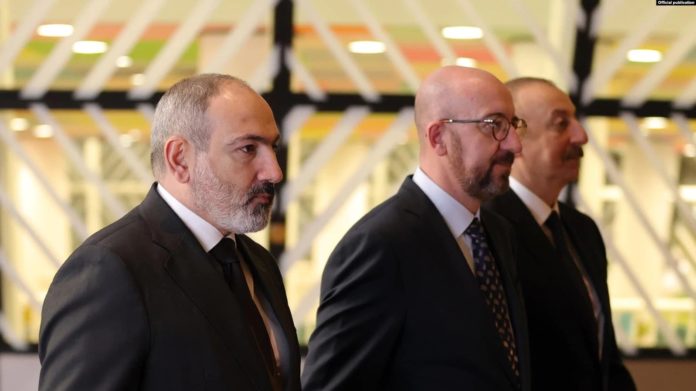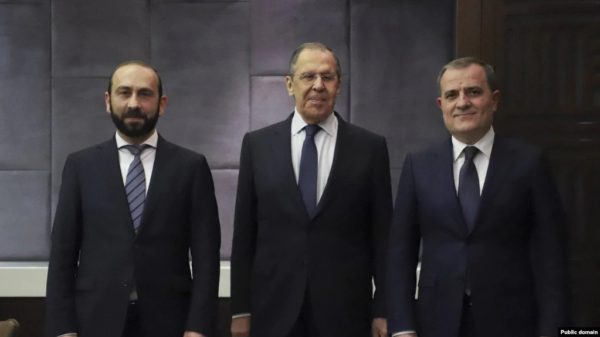BRUSSELS (Azatutyun) — Armenia and Azerbaijan’s leaders made progress towards negotiating a bilateral peace treaty, demarcating the Armenian-Azerbaijani border and opening transport links between the two countries, European Council President Charles Michel said early on May 23 after hosting fresh talks between them the previous day.
Michel held a trilateral meeting with Armenian Prime Minister Nikol Pashinyan and Azerbaijani President Ilham Aliyev in Brussels for the second time in less than two months.
“The leaders agreed to advance discussions on the future peace treaty governing inter-state relations between Armenia and Azerbaijan,” Michel told reporters. “Teams led by the [Armenian and Azerbaijani] foreign ministers will take forward this process in the coming weeks.”
“In addition to this track, I also stressed to both leaders that it was necessary that the rights and security of the ethnic Armenian population in Karabakh be addressed,” he said.
Michel did not say whether Aliyev and Pashinyan agreed on the agenda of the planned negotiations on the Armenian-Azerbaijani treaty. Pashinyan’s office did not report any agreements to that effect in a statement on the Brussels summit.
In March, Baku presented Yerevan with five elements which it wants to be at the heart of the treaty. They include a mutual recognition of each other’s territorial integrity.











